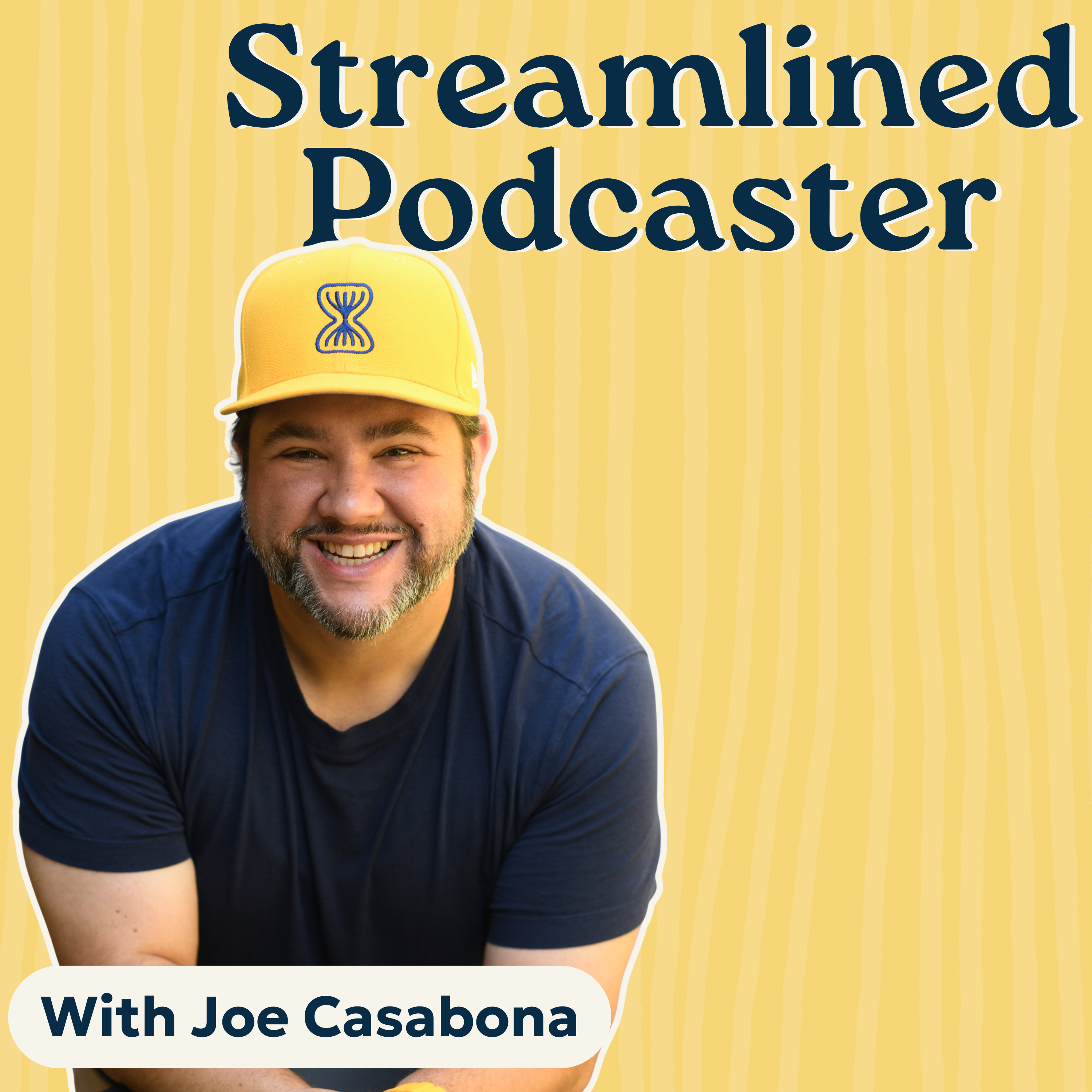
Podcasting Made Simple
Podcasting Made Simple is the premier podcast about podcasting! We’re here to help podcast guests and podcast hosts reach more listeners and grow their income so they can change more lives! Join Alex Sanfilippo and other podcasting industry experts as they share how you can level up on either side of the mic! (Show notes and resources: https://PodMatch.com/episodes)
Podcasting Made Simple
Getting Better at Interviewing Your Podcast Guests | Marcy Amaro
Podcast interviews that are powerful and impactful for listeners don't happen by accident. Sadly, most interview-based podcasts seem to get interviewing all wrong. But for serious podcasters, there is an opportunity here! In this episode, Marcy Amaro shares the art and science behind what it takes to conduct an engaging interview conversation that draws out the best possible content for your listeners. Get ready to level up your podcast interview skills so your listeners get more value!
MORE FROM THIS EPISODE: HTTPS://PODMATCH.COM/EP/299
Chapters
00:00 Introduction: The Awkwardness of Short Answers
01:03 Marcia Mauro: The Difference Between Art and Science of Interviewing
05:19 Chapter 1: Deepening Human Connection
09:05 Chapter 2: Edifying the Speaker
12:18 Chapter 3: The Power of Presence
13:47 Conclusion: Elevating the Art of Interviewing
Takeaways
- Deepen human connection with guests before the interview to create rapport and lessen tension.
- Edify the speaker by being genuinely interested and engaged in their content.
- Be fully present in the conversation to allow for natural flow and deeper engagement.
- Practice active listening and speaking simultaneously to improve interview skills.
- Elevating the art of interviewing enhances the overall podcasting experience for both the host and the audience.
MORE FROM THIS EPISODE: HTTPS://PODMATCH.COM/EP/299
📊 This month's Independent Podcasters Report is now available! To see podcasting industry insights that matter for indie podcast hosts and podcast guests, please visit https://PodMatch.com/Report!
You're listening to Podcasting Made Simple. Have you experienced that awkward moment? I think we all have as podcast hosts. We have who we think is the perfect guest. We've done our research, we know our stuff, we send them the questions ahead of time, and we think everything is absolutely perfect. But then... It happens. You ask them a question and they answer in one or two words. Short phrases, snappy and straight to the point. You're waiting for the stories, you're waiting for the analogies, for the metaphors, for all the wonderful insights, and all you get is one or two word answers and silence. It is so... Awkward you have no idea what to do But you know that if you were the listener on the other side you would be looking for another podcast to listen to you would be thinking What on earth I thought this was going to be a very value -filled Wonderful entertaining interview and yet all I hear is awkward silences Hi, I'm Marcia Mauro. I am a self -leadership coach and a communication expert and a podcast host of Sincerely Speaking. And what I would love to share with you today is the difference between the art and the science. of interviewing and we're going to focus on the art of interviewing because ultimately what we really want to do is serve our audiences at a higher level, right? We want to make sure that our audiences are engaged, entertained and educated while at the same time we are building a brand and we are creating an impact and we are letting ourselves and our guests be known. So we want this experience of interviewing someone, interviewing an expert to be something that edifies both them and us. elevates the audience's awareness, knowledge, understanding of the topic at hand and that it's an overall wonderful experience for everybody involved, right? So in order to do that, in order to elevate our interviews to the next level, we need to separate the science from the art. for a minute and then figure out how to bring them together so that we can master both the science and the art of the interview. I believe that as podcasting hosts, most of us are very aware and very masterful at executing the science part of hosting a podcast. So we do our research. We look for guests that are a match to our podcast intention, topic, and theme. We look for guests that are experts in their field and we vet and we qualify these guests, right? Then we prepare ahead of time and we prepare questions and we have a structure in place and we make sure that both us our guests and anybody who's in our team and in our staff knows exactly how we want this interview to go. We have the introductory story, we have our intro, we have our outro. If we have sponsors, we have our ads in place. We have everything put together so that everything is seamless and smooth. But there's an element that we cannot control ahead of time. And it's the art of that interaction between the host and the guest. It's the art of knowing how to keep your guests involved and engaged, how to draw out all the wonderful wisdom that it's inside of them. That's the reason why we invited them to be part of our podcast in the first place and also to make it an entertaining, interactive experience so that the audience listening in will feel drawn into the conversation, will feel part of. The podcasting experience is not just as passive listeners, but as interactive, active participants in the information that is being presented. So how do we do that? Well, in order to elevate our podcasts in that level, in order to activate the art of the interview, first we have to know the science. And that's why I mentioned it, right? And we all know that the best and most important way to elevate our podcast is to be fully prepared, to vet our guests carefully, to make sure that we are inviting people in who are a true fit, that we're not just inviting anybody in because we just want guests, that we are making it an important connection that is going to be of service, not just to us, not just to our guests, but to everybody listening in. And in order to do that, we have to really be aware of what our topic is, what it is that is the ultimate intention of our podcast and what it is that we're trying to bring to our audience, who our audience really is. So that's part of niching it down. But as we focus on the art, there are three things that I think if we inject them, into the way we do podcasting, if we inject them into the experience of the interview, it's going to completely shift and alter both the energy that you feel from your guest, the energy that you put out, and the engagement that you get from your audience. So it's a win -win -win for everybody involved. And it boils down to three amazingly simple, but also often ignored things that we are going to be discussing here today in the next 10 minutes. So the first thing is deepening human connection. Now before I explain what this is, even though you probably have some notion of what I'm going to say, let me ask you this. What is probably one of the most awkward interactions humans ever experience? If you set a blind date, I would agree with you, right? I don't care if you're an extrovert, an introvert, if your personality is of the... of the top, you know, or just very sedate. I don't, regardless of your personality, that makes no difference. A blind date is typically a pretty awkward scenario. And why is that? Because you have two human beings who have never met each other, trying to create a connection in the moment to see if there's further possibility for more interaction, to see if there's further connection, or if there's a spark that can be lit, right? Now, as Awkward as first dates can be when they are blind dates, they are increasingly worse. At least in my experience and in my opinion, we just had really bad blind dates. I didn't have many, but anyway, that is because you are trying to fit into a first encounter too many expectations that are outside of the scope of just meeting someone for the first time. Right? So when you have a first date, but you've already met, Even though there is this expectation of will we hit it off? Will it be a good fit? Will we actually have fun? It's lessened a little bit by the fact that you've already met this person. So what am I trying to say here? One of the biggest mistakes that I see podcast hosts make is that they never meet their guests until the moment of the interview. So you're going into the interview the way you go into a blind date. And there's an easy fix for this. If your calendar permits, schedule a five to 10 minute call with the guest before you schedule the actual interview or live stream moment, right? Before you schedule that moment of hitting record or hitting go live. And if you can commit to five to 10 minutes before of just interacting, chatting, seeing how you connect, seeing what things you have in common, just being human together, that is going to Relief a lot of the tension especially if one or both of you tend to be more on the introverted side or more on the shy side of things This is going to lessen that tension and it's going to allow you to see how you can connect with each other to see what kind of chemistry you have or to build some sort of rapport and chemistry prior to The interview that the audience is going to experience here and see or feel if you cannot schedule of time separate from the interview, then at least if your interview is going to be 40 minutes, schedule an hour and meet 20 minutes, 15 minutes before the live stream or the recording is going to take place. And use those 10, 15 minutes to connect at a human level to answer questions that the guest might have. to try and establish a rapport that lessens the tension and that allows you to connect at a deeper human level. And that is going to make all the difference. Because if you wait to try and make the connection right in the middle of the interview, you are going to have expectations that might not be matching. You're going to have anxiety on the part of one or two of the parties. And you're going to have that tension, that awkwardness show on your interview. So that is the first thing is deepen that human connection prior to hitting play or record or hitting go live. The second element is edify your speaker. So here is one of the things that we really mess up in when we are executing just the science of the interview. And it's we come up with a set of questions that are wonderful, amazing questions, but that then make us feel like robotic rattling off, right? Filling off almost questions like, ba -ba-ba -ba -ba -ba -ba -ba -ba, right? And the person has not finished answering the question completely when you're already firing off the next question, right? And sometimes those questions are even disjointed from the answer that the person just gave. I've actually witnessed interviews, and I was guilty of this at the beginning of my process, where they ask a question that the person has just finished answering because they're just going through the checklist of the questions that they have in front of them. Now, I think it's important to have a set of go to questions, right, like save questions that you can revert to in case you need more content, in case you're running out of time and you don't know what, or you're running out of questions, but you still have a lot of time and you don't know what else to say. Having these... preset questions is going to help you because it's going to keep you focused on the topic at hand and sending those questions to the guest, especially if it's a guest that it's not as used to being interviewed, then it's going to help them know more or less what to come to the interview with and how to prepare for the interview. But the more you can be naturally engaged with your guest, it's a conversation. The way I describe my experience in a podcast, to my guests is this is a conversation among friends that just happens to be recorded. So if you can make it a conversation, something that's casual, something that is natural, then you're going to allow the experience to be more useful, more helpful, and more productive for everybody involved and more engaging for your audience. Get really curious about what that person has to say. and edify them in everything that you say. This is not a competition. You're not trying to one up your guests. So if you notice the great interviewers and at my lead, anybody who's a great interviewer, one of the things that they do and they do it naturally and they do it genuinely is when the guest has something wonderful or something impactful, they respond and they react like, Whoa, that was awesome. Let me repeat that. Can you say that again? I hope you're catching this. This is amazing. Right? So when you can naturally engage and edify and react naturally, be interested and be curious about what your guest is saying, you're going to automatically elevate the conversation. Right? And then the final element is to be fully 100 % present in the conversation. The first and most important element of appearing charismatic is to be fully present and focused in the conversation at hand. So if you are 100 % focused on listening with curiosity to what that guest is saying. If you are avoiding all other distractions and just being 100 % present in the conversation, You're going to allow yourself to react naturally. You're going to allow the conversation to flow. You're going to naturally find yourself asking questions that might be a little bit off of the list that you originally wrote, but that are going to elevate your conversation to a new level. So when you are looking to employ the art of the interview, it boils down to those three things. Create deep human connection. Be really interested in the person and take the time to build that connection and that rapport before you start the interview that is going to be shared with others. Edify the speaker by being fully curious, really interested and engaging naturally with their content and be fully 100 % present. Now, something that I do that helps me practice so that I'm better at the art of the interview is when I listen on my own to other podcasts, to other interviews. As they are talking, I repeat what I'm hearing. and it sounds ridiculous, but I'm trying to actively listen and speak at the same time. What that does is it elevates my ability, it increases my ability to retain in my working memory the information that is being said while at the same time preparing to speak, right? So that is going to help you retain the information that they're saying so that you can ask questions that are more connected to the information they just gave you. And if all else fails, don't be afraid. to have a little notepad to jot down keywords that you want to go back to. So I hope this has been helpful. Let's elevate all our podcasting experiences by rising to the art of the interview and not sticking just to the science. For more episodes, please visit podmatch.com forward slash episodes. Thank you so much for listening.
Podcasts we love
Check out these other fine podcasts recommended by us, not an algorithm.
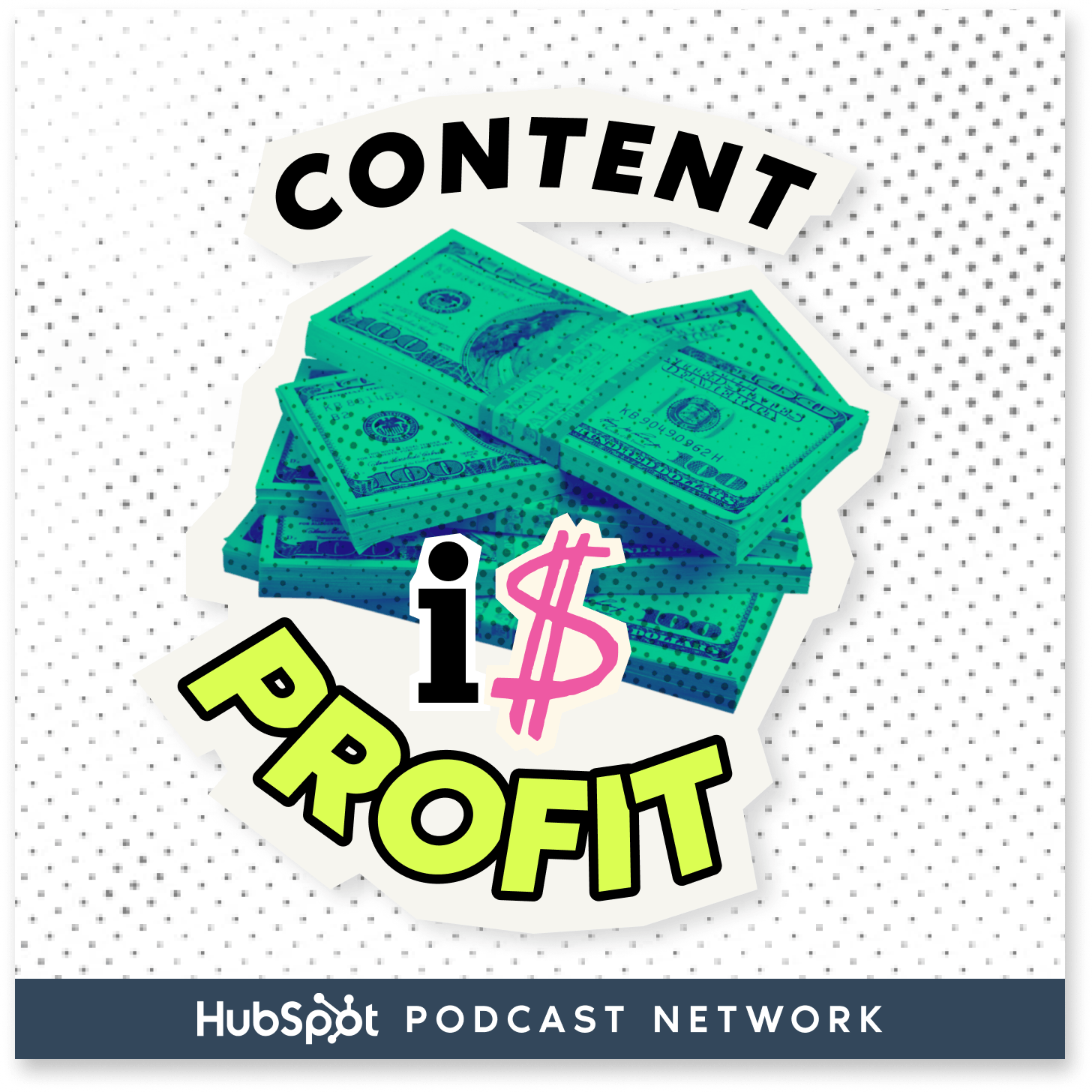
Content Is Profit
BIZBROS
Win The Content Game
Deirdre Tshien - CEO & co-founder of Capsho, AI-powered Content Marketer (the fastest way to repurpose and market your expert content)
Fastlane Founders and Legacy with Jason Barnard: Personal Branding, AI Strategies, and SEO Insights
Jason Barnard Entrepreneur and CEO of Kalicube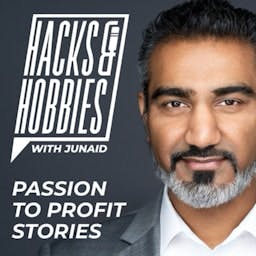
Hacks and Hobbies with Junaid Ahmed
Junaid Ahmed
I Have A Podcast by Vinnie Potestivo
Vinnie Potestivo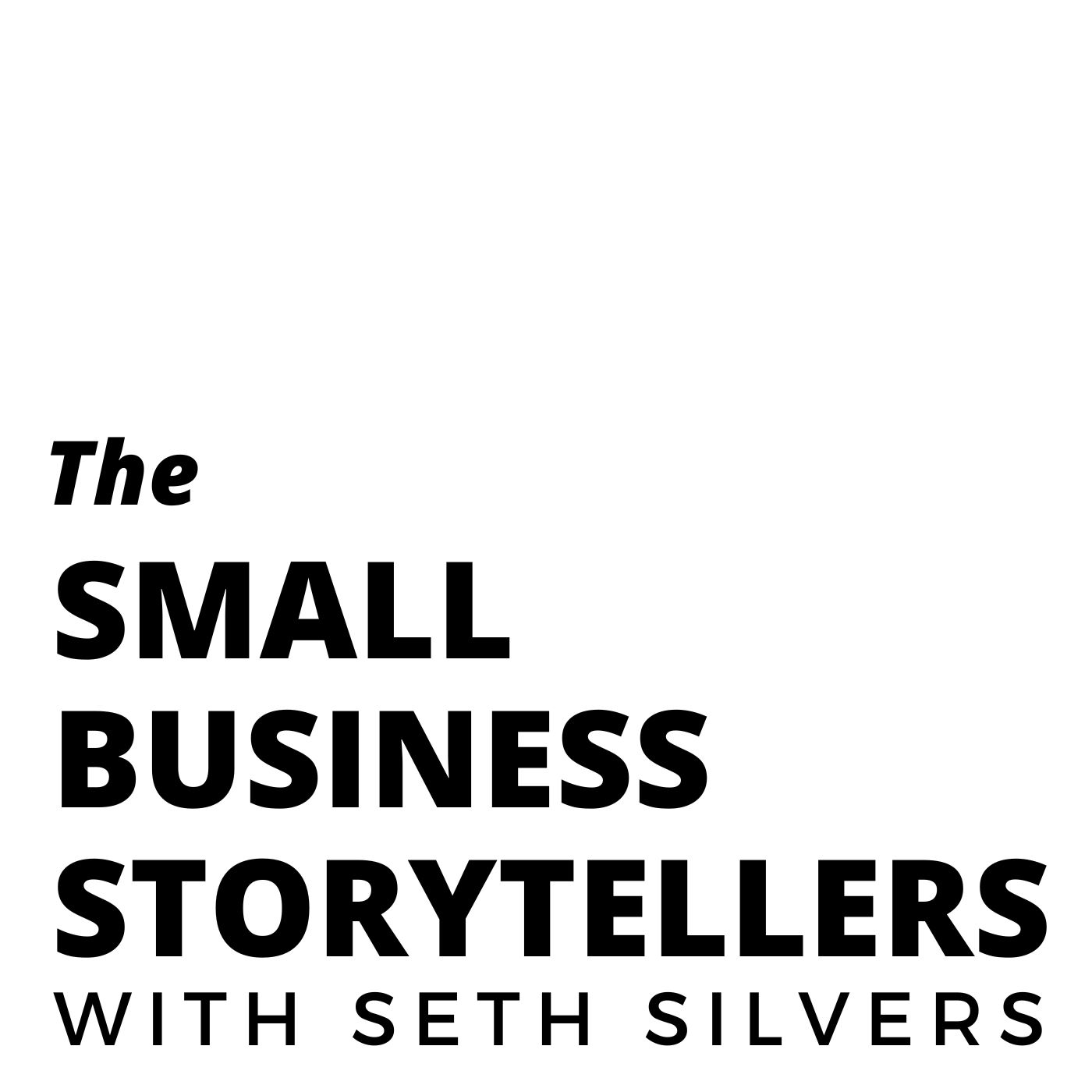
The Small Business Storytellers with Seth Silvers
Seth Silvers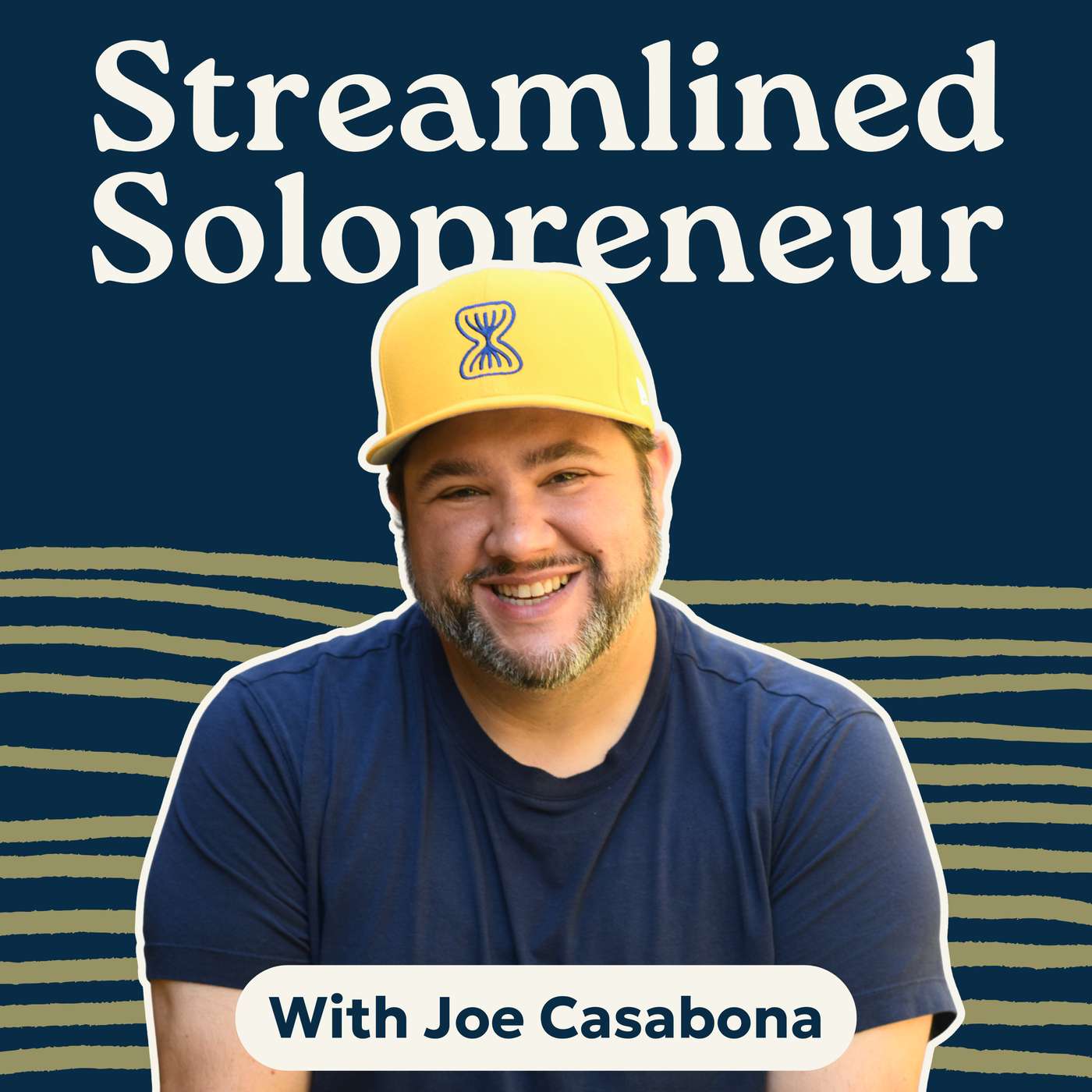
Streamlined Solopreneur: Tips to Help Small Business Owners Grow Without Burnout
Joe Casabona, Business Systems Coach
Insider Secrets to a Top 100 Podcast with Courtney Elmer | Podcasting Strategy for Business Growth
Courtney Elmer | PodLaunchHQ.comDo The Thing
Stacey Lauren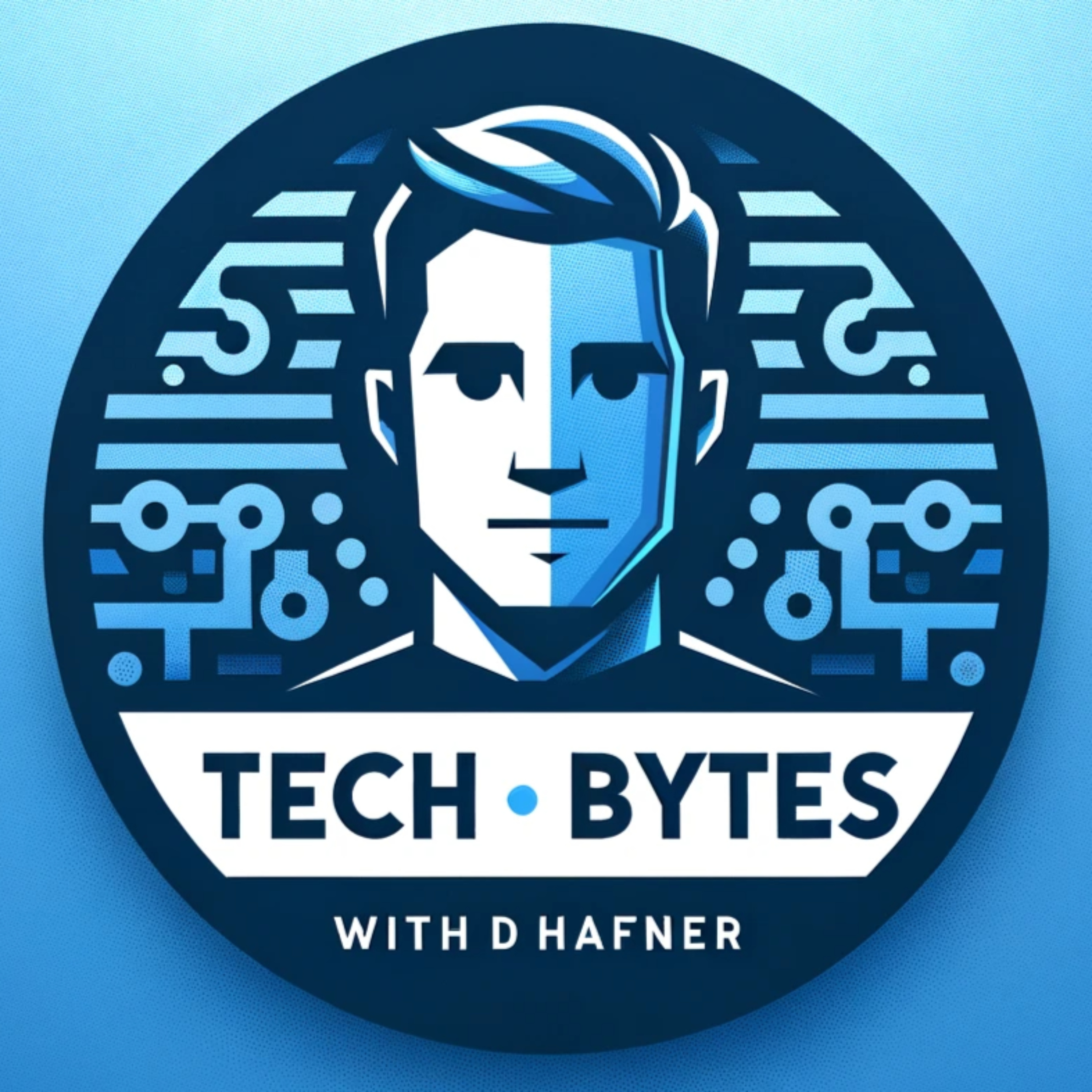
Tech Bytes - with Dan Hafner
Dan Hafner

